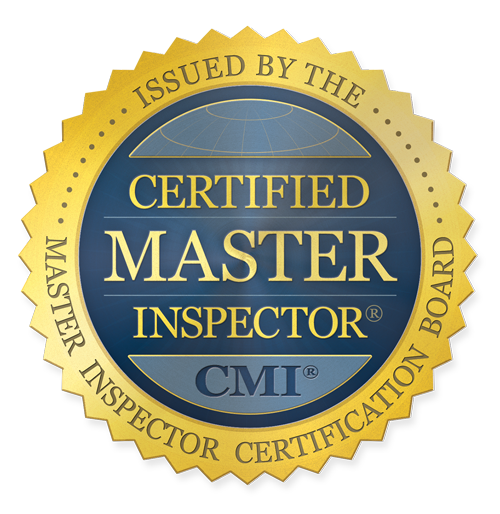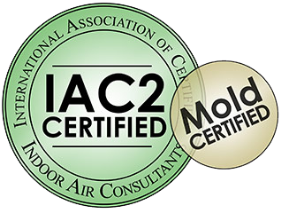Anyone who has become a homeowner in Florida probably knows that a 4 point inspection is almost always needed to qualify for a homeowner’s insurance policy. And anyone looking to be a first-time homeowner in our state is soon to find that fact out.
It’s not a state law or anything, but 4 point home inspections are simply required by home insurance companies. And since home insurance is required by the mortgage lender, no one can really afford to skip this kind of inspection.
Here are some of the reasons why a four-point inspection is considered to be so important, along with the basic facts about what a 4 point inspection entails.
Why Do I Need A 4 Point Inspection?
As mentioned above, homeowner’s insurance companies will want a 4 point home inspection done on any piece of real estate before they will be willing to cover it.
There are additional reasons for a 4 point inspection too, of course, like simply verifying the condition of a home before buying it, but we want to focus on the insurance aspect here.
Note that it is especially critical to have a 4 point inspection done on older homes because they are more likely to have issues that could lead to home insurance claims.
Any building over 25 years old (and especially 40 to 50 years or more old) is sure to require an inspection. But most insurers tend to want one done regardless.
(There may be cases, however, where there is an exception and an insurer will forego an inspection requirement on a very new home.)
If you are planning to buy a new home, you would do well to order a home inspection in order to discover any potential problems with the home before finalizing the sale. If you have put down earnest money, you have a right to inspect the property and can legally back out of the contract if serious problems are uncovered by a four-point or other type of professional home inspection.
What Does a 4 Point Home Inspection Consist Of?
What are the four points of a 4 point inspection, you might ask? The “four” refers to the home’s four major systems:
- Roofing
- HVAC
- Plumbing
- Electrical
These are, by far, the four most important systems in any home. They are also the most expensive systems in a home and the most likely sources of any future home insurance claims.
1. Good roofing is of the utmost importance to any home. The roof, after all, shields everything else below it from the weather, has a huge impact on your home’s energy efficiency and makes a major contribution to the building’s overall curb appeal.
The age and current condition of the roof, roofing material, and other roofing system components will be ascertained by the inspector. The goal is to figure out how much it would cost to replace or repair the roofing if it were damaged in a storm or by some other means.
Newer roofing could save you on your home insurance premiums, but whatever the age of the shingles, they need to be in adequate condition before the insurer will agree to cover your home.
2. HVAC refers to a building’s heating, ventilation and air conditioning systems. These combine to help regulate the temperature inside your home and control air quality. HVAC is obviously key to anyone living in a house and to resale value, but home inspectors are looking for potential claims.
The age and condition of the HVAC system will be determined by the home inspector. Older homes that lack central air or that use outdated systems and components will be flagged.
The risk of fire or water damage due to old or ineffective HVAC systems will be assessed. An upgrade may be recommended in some cases.
3. The plumbing system, including pipes, faucets and other fixtures, hot water heaters, and more will be looked at carefully as well. Drains and supply lines will also get some scrutiny.
What material the pipes are made out of, how old they are, if there are signs of a leak, or if there is any rust – these are the kinds of things that the 4 point inspection is meant to check for.
As plumbing problems are among the most dreaded by homeowners and could result in serious water damage, it’s easy to see why home insurers would take extra time to verify what state the plumbing is in before agreeing to provide coverage.
4. The electrical system. Outdated electrical wiring can have a serious effect on your home. If your home still has the extremely outdated knob-and-tube wiring system that was popularized in the 1940s, home insurance companies will need to know that information.
Even aluminum wiring, a prominent method in homes from the mid-60s to early-70s, has since been deemed too risky for homes and eliminated from construction.
If the home you’re purchasing has any of these electrical systems in place, it also has a greater risk of being involved in a homeowners insurance claim. A 4-point inspection also goes over the electrical panels and the overall visible condition of the system.
Examples Of How 4 Point Inspections Relate to Home Insurance
It should already be fairly clear why homeowner’s insurance providers want to see a 4 point inspection report before insuring your home. But to make the point come alive a bit more, let us look at a few examples of how a 4 point inspection relates to home insurance coverage.
- Let’s say the roofing on your home is 30 years old and past its manufacturer’s warranty. It is more prone to developing leaks and suffering from other forms of roof damage. An old roof increases the risk of insuring a building, so it could drive up premiums on home insurance. Or, putting on a new roof could change the whole equation.
- Another example might be an older furnace that poses a greater fire hazard, an old central air system that may soon need to be replaced, or lack of proper ventilation which could cause moisture buildup, mold, and wood rot over time.
- An outdated plumbing system poses a higher risk of leaks and serious water damage. Old, rusty pipes also affect the quality of the tap water used in the home.
- Old or improperly installed electrical wiring creates a risk of both electrocution and fire. In extreme cases, the home may need to be rewired.
As you can see, getting a 4 point inspection is a wise and necessary move when you want to insure your home. There are reasons why insurers normally require a 4 point inspection, especially with older homes. And it also makes sense to want a home inspection done before buying a new home so you know what you are getting into.
To learn more about home inspections in Florida, contact Super Inspection Pros today for a free consultation!

